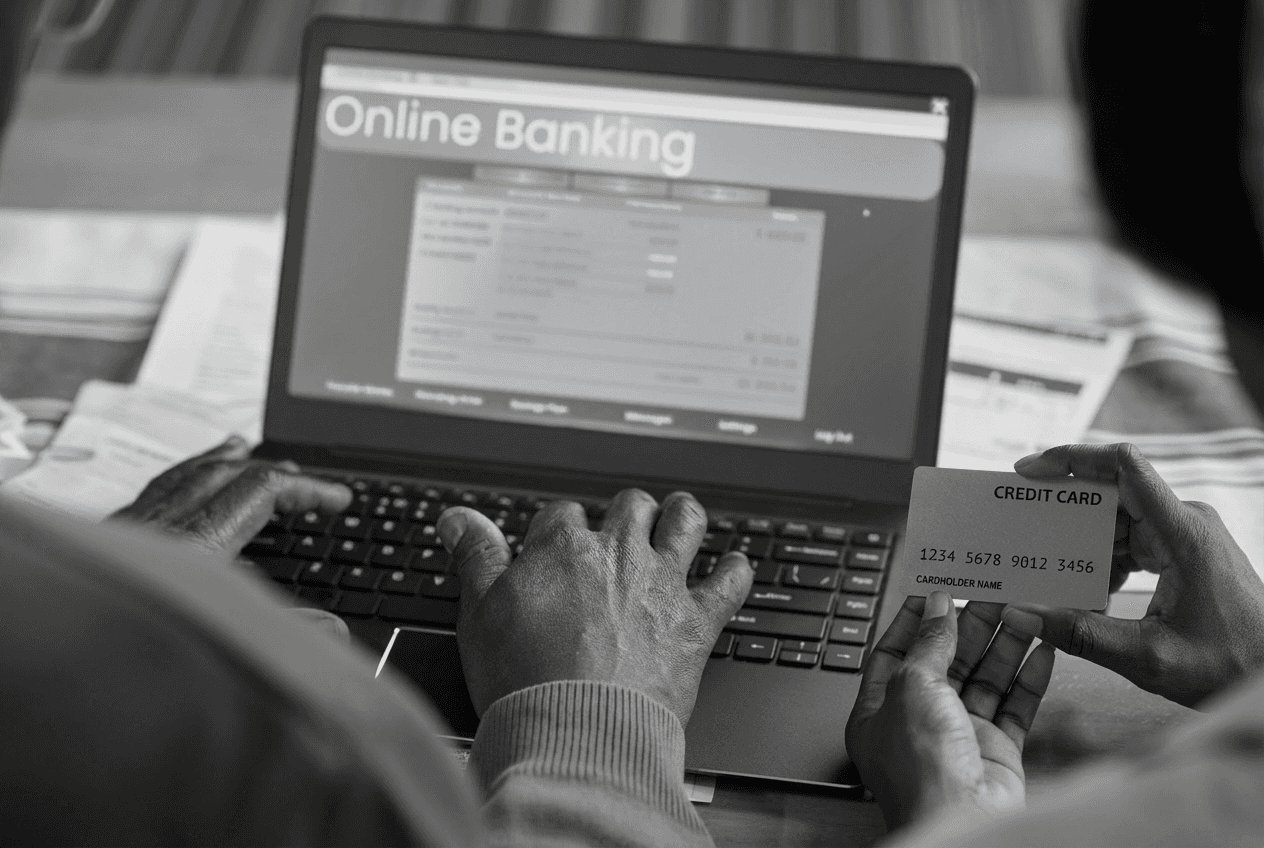August 4, 2025
August 4, 2025
August 4, 2025
5G & Cyber Risk in Nigeria: How Faster Networks Can Turn Against You
We believe the best systems stay out of the way. That’s why we keep humans in the loop, prioritize defaults over mandates, and report outcomes that leaders care about.
We believe the best systems stay out of the way. That’s why we keep humans in the loop, prioritize defaults over mandates, and report outcomes that leaders care about.
Nigeria is rolling out 5G, promising speed and connectivity. But with it come new cybersecurity risks. Discover how 5G changes the threat landscape, what attacks to expect, and how Nigerians can stay safe.
The 5G Promise - and the Shadow It Casts
5G is not just a speed upgrade. It’s a leap into a hyper-connected world: more devices, more data, more dependency. In Nigeria, operators are expanding infrastructure rapidly — fueling everything from mobile banking to IoT in smart homes. According to BusinessAM Live, 5G gives criminals more opportunities, because every connected device becomes a potential attack vector.
Cybersecurity in the 5G Era: What Nigerians Need to Know reports that as 5G expands, so do the vulnerabilities — especially in weak devices and open third-party APIs.
Also, data traffic in Nigeria surged alongside 4G/5G expansion. As AInvest notes, Nigeria’s internet usage hit 1.131 million terabytes in July 2025 — a reflection of how many more devices and users are online now.
Nigeria’s 5G Push Fuels Digital Surge
With scale comes risk: more endpoints, weaker devices, more software, and more interconnectivity.
How 5G Changes the Game for Attackers
Old Attack | Amplified by 5G | New Attack Vector |
|---|---|---|
Phishing via email or SMS | Faster delivery, better spoofing | AI-generated phishing targeting IoT |
Weak IoT or smart devices | Many more underpowered, insecure devices | Botnets controlling devices, pivoting into networks |
Man-in-the-middle exploits | Lower latency, more network slices | Exploits in network slicing, side-channel attacks |
SIM swap / SS7 | More devices, overlapping identities | Attacks on 5G authentication protocols |
Edge / Cloud misconfiguration | More distributed processing | Edge node exploitation |
Security infrastructure that was fine in 4G won’t survive in 5G’s complex, distributed environment.
Nigeria’s Context - Why We’re Especially Vulnerable
Kaspersky’s mid-2025 threat report shows Nigerian security tools blocked over 1.46 million attack attempts in H1 2025 — indicating attackers are already probing aggressively.
In Communications Africa, it’s noted Nigeria saw a 66% surge in password stealer attacks in H1 2025 compared to H1 2024 — spyware and credential harvesting are rising.
A continent-wide cyber vulnerability assessment placed Nigeria in the top five most vulnerable African nations.
(“A Continent-Wide Assessment of Cyber Vulnerability Across Africa” — arXiv)
That means many of our IoT devices, open ports, and default configurations are already exposed.
Nigeria’s cybersecurity market is also poised for growth — NITDA says the sector may reach $345.43 million by 2029.
That growth demands secure foundations, not fragile ones.
NITDA DG: Nigeria’s Cybersecurity Market to Reach $345.43 Million by 2029
So we’re building promiscuous lanes (5G) over a shaky foundation (cyber posture).
What Nigeria & You Can Do to Defend 5G Era
For Individuals & Households
Use strong unique passwords and never default credentials on IoT devices.
Update firmware on routers, smart devices, security cams.
Enable 2FA/MFA on all accounts, especially telecom, banking, email.
Treat every new “smart” gadget like a threat until proven safe.
Use secure VPNs when connecting to public or semi-trusted networks.
For Businesses & Startups
Demand security standards and SLAs from 5G / telecom partners.
Test devices rigorously (penetration, fuzzing) before deployment.
Use network segmentation and micro-segmentation - don’t let one device compromise all.
Monitor edge and cloud activity with logging and anomaly detection.
Encrypt data end-to-end; apply zero trust where possible.
Partner with cybersecurity audit firms to validate your 5G integration.
For Telecom Operators & Regulators
Embed security from design — “secure by default” 5G architecture.
Audit network slicing, identity, and authentication layers (5G AKA, SIM / eSIM).
Mandate minimum security for devices connecting to 5G networks.
Foster public-private threat intelligence sharing (incident feeds).
Regulate and enforce compliance (with audits, penalties).
Support R&D in local 5G security tools (edge firewalls, anomaly detection).
Conclusion - Faster Doesn’t Mean Safe by Default
5G in Nigeria promises to transform lives — faster streaming, telemedicine, smart agriculture, autonomous systems. But it also dramatically widens the attack surface.
If we don’t build robust defenses now, we’re inviting havoc in the name of progress. Nigeria must not only connect faster — it must connect smarter and safer.
The question isn’t “Will 5G bring benefit?” but “Will Nigeria survive the transition intact?”
Nigeria is rolling out 5G, promising speed and connectivity. But with it come new cybersecurity risks. Discover how 5G changes the threat landscape, what attacks to expect, and how Nigerians can stay safe.
The 5G Promise - and the Shadow It Casts
5G is not just a speed upgrade. It’s a leap into a hyper-connected world: more devices, more data, more dependency. In Nigeria, operators are expanding infrastructure rapidly — fueling everything from mobile banking to IoT in smart homes. According to BusinessAM Live, 5G gives criminals more opportunities, because every connected device becomes a potential attack vector.
Cybersecurity in the 5G Era: What Nigerians Need to Know reports that as 5G expands, so do the vulnerabilities — especially in weak devices and open third-party APIs.
Also, data traffic in Nigeria surged alongside 4G/5G expansion. As AInvest notes, Nigeria’s internet usage hit 1.131 million terabytes in July 2025 — a reflection of how many more devices and users are online now.
Nigeria’s 5G Push Fuels Digital Surge
With scale comes risk: more endpoints, weaker devices, more software, and more interconnectivity.
How 5G Changes the Game for Attackers
Old Attack | Amplified by 5G | New Attack Vector |
|---|---|---|
Phishing via email or SMS | Faster delivery, better spoofing | AI-generated phishing targeting IoT |
Weak IoT or smart devices | Many more underpowered, insecure devices | Botnets controlling devices, pivoting into networks |
Man-in-the-middle exploits | Lower latency, more network slices | Exploits in network slicing, side-channel attacks |
SIM swap / SS7 | More devices, overlapping identities | Attacks on 5G authentication protocols |
Edge / Cloud misconfiguration | More distributed processing | Edge node exploitation |
Security infrastructure that was fine in 4G won’t survive in 5G’s complex, distributed environment.
Nigeria’s Context - Why We’re Especially Vulnerable
Kaspersky’s mid-2025 threat report shows Nigerian security tools blocked over 1.46 million attack attempts in H1 2025 — indicating attackers are already probing aggressively.
In Communications Africa, it’s noted Nigeria saw a 66% surge in password stealer attacks in H1 2025 compared to H1 2024 — spyware and credential harvesting are rising.
A continent-wide cyber vulnerability assessment placed Nigeria in the top five most vulnerable African nations.
(“A Continent-Wide Assessment of Cyber Vulnerability Across Africa” — arXiv)
That means many of our IoT devices, open ports, and default configurations are already exposed.
Nigeria’s cybersecurity market is also poised for growth — NITDA says the sector may reach $345.43 million by 2029.
That growth demands secure foundations, not fragile ones.
NITDA DG: Nigeria’s Cybersecurity Market to Reach $345.43 Million by 2029
So we’re building promiscuous lanes (5G) over a shaky foundation (cyber posture).
What Nigeria & You Can Do to Defend 5G Era
For Individuals & Households
Use strong unique passwords and never default credentials on IoT devices.
Update firmware on routers, smart devices, security cams.
Enable 2FA/MFA on all accounts, especially telecom, banking, email.
Treat every new “smart” gadget like a threat until proven safe.
Use secure VPNs when connecting to public or semi-trusted networks.
For Businesses & Startups
Demand security standards and SLAs from 5G / telecom partners.
Test devices rigorously (penetration, fuzzing) before deployment.
Use network segmentation and micro-segmentation - don’t let one device compromise all.
Monitor edge and cloud activity with logging and anomaly detection.
Encrypt data end-to-end; apply zero trust where possible.
Partner with cybersecurity audit firms to validate your 5G integration.
For Telecom Operators & Regulators
Embed security from design — “secure by default” 5G architecture.
Audit network slicing, identity, and authentication layers (5G AKA, SIM / eSIM).
Mandate minimum security for devices connecting to 5G networks.
Foster public-private threat intelligence sharing (incident feeds).
Regulate and enforce compliance (with audits, penalties).
Support R&D in local 5G security tools (edge firewalls, anomaly detection).
Conclusion - Faster Doesn’t Mean Safe by Default
5G in Nigeria promises to transform lives — faster streaming, telemedicine, smart agriculture, autonomous systems. But it also dramatically widens the attack surface.
If we don’t build robust defenses now, we’re inviting havoc in the name of progress. Nigeria must not only connect faster — it must connect smarter and safer.
The question isn’t “Will 5G bring benefit?” but “Will Nigeria survive the transition intact?”











